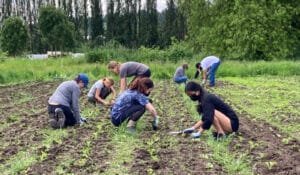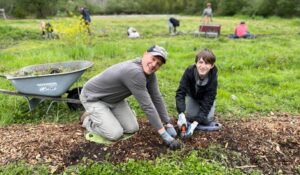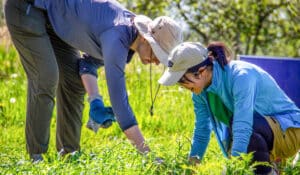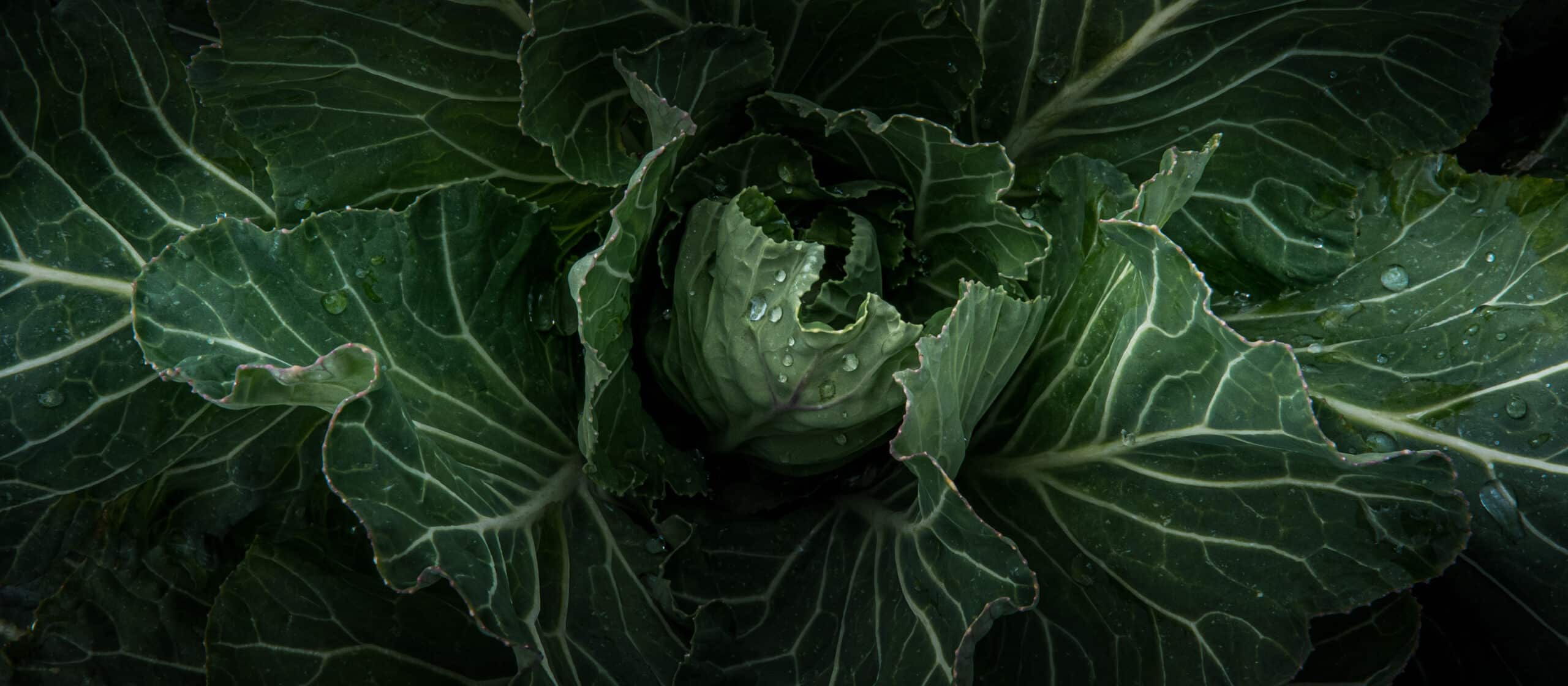
How Hard Is It to Go Plastic-Free for a Month?
How Hard Is It to Go Plastic-Free for a Month?
- posted on: September 9, 2020
- posted by: Rebecca Jordan
"*" indicates required fields

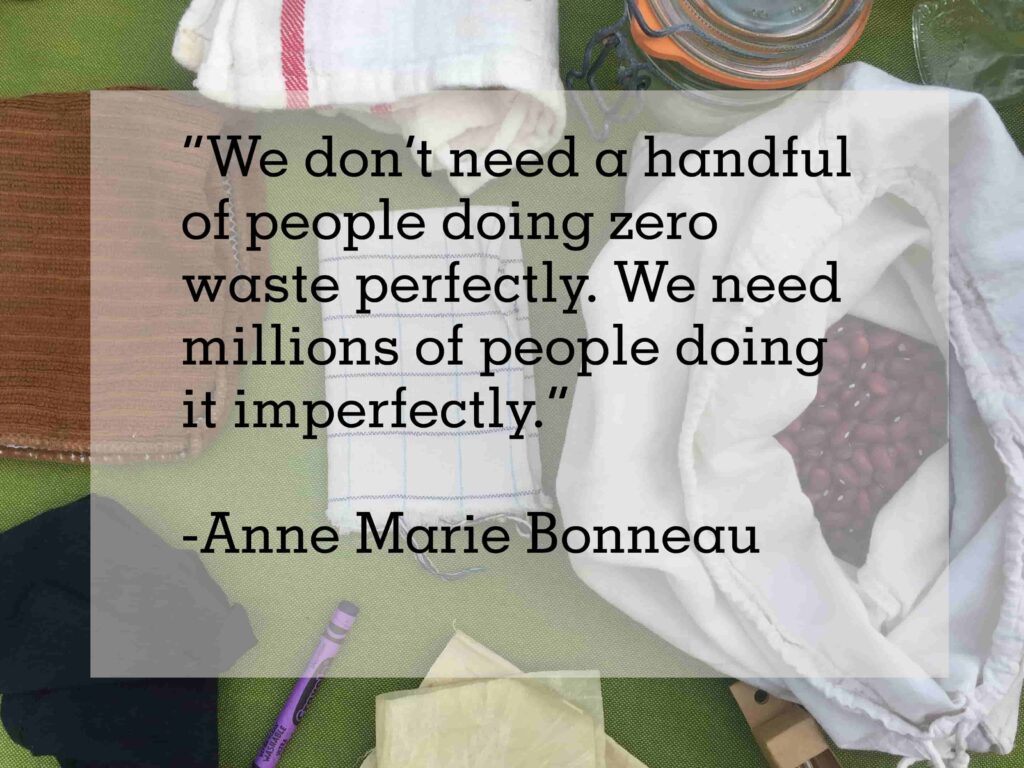
So, how difficult was it really to go plastic-free? Some of our staff and community members took the challenge. Here’s what they had to say.
Liesl:
This month’s Plastic Ecochallenge really pushed me to find new ways of limiting and eliminating even more plastic from our home life. My household has worked on this for a number of years so the things I call “low hanging fruit” have already been incorporated into our daily lives.
However, our most particular challenge this month was the daily task to create 2 plastic-free meals. The produce and bulk beans or grains – no problem. Meat or cheese involved? Problem. I’ve prioritized eating less meat, and only from local farmers, for a few years. But since they only slaughter once per year, their inventory is vacuum-packed to keep the meat safe and high-quality in the freezer.
Thank you to the members of the 21 Acres team for your encouragement, creativity, and own inspiring actions. I’ll continue to wrestle with many of the issues we raised for months to come.
Mary:
I loved doing the Plastic Free July Ecochallenge. I have been keenly interested in where all of the plastic goes now that China won’t accept it from the United States. We have been very complacent and spoiled by mixed curbside recycling and unquestioned trash production. After “where does it go?” my mind next leaps to “where does it come from, and why?” What did our great grandparents do without plastic wrap and bags to reach for?
I had already eliminated some plastics from my purchasing (plastic cling wrap and storage bags) and this challenge helped me pay more attention to food and other products I purchase that come in plastic. Most of the time I could make another choice, but not always (or at least not one that was acceptable at the time). Sometimes the more ecologically sound choice was significantly more expensive. Other times it was more economical. Short of small game hunting, I can’t figure out a way to consume meat without getting it wrapped in plastic. I enjoyed reading other members’ posts on their personal plastic challenges, solutions, and resources.
Rhianne:
This challenge of going plastic-free for the month revealed to me just how serious the ever-looming threat is of corporations and consumers choosing convenience over consequences. Through the early days of this challenge, the act of simply shifting my awareness to seeing where I was supporting plastic use revealed how difficult it is to avoid plastic in each moment of the day! Although there were many times through the month of July I failed to remain completely plastic-free, I learned through the actions of the amazing people on our team about the many ways we can adapt to opting out of plastic; be it by doing the extra work it takes to source a bio-degradable packaged product, learning new recipes and sourcing foods from local farms that do not package in plastic, or advocating for plastic-free packaging at your favorite stores and restaurants when shopping.
The most valuable method of avoiding plastics even when it seems impossible came through from a quote from one of our team members, Anne: “I found myself shopping—standard sandwich bread in a double layer of plastic wrap, cookies in a Mylar bag with a plastic tray, a bag of baby carrots—then unshopping, putting it back.” This quote stuck with me throughout the challenge—having a small voice saying “un-shop” through my trips really helped. Simply putting items back and trying again, or choosing to find items elsewhere, was easier and more rewarding than I had anticipated. In the realm of grocery shopping, this guidance led me to learn new skills in the kitchen, like learning to make my own cookies from plastic-free ingredients rather than buying cookies in plastic boxes, and becoming more varied in my use of foods in general when eliminating all that is sold with plastic.
Through this challenge, I learned of many valuable resources and stores that offer sustainable products and refillable bulk solutions to individualized packaging like Recology’s storefronts in Bothell, Issaquah, and Shoreline, and Scoop Marketplace, a zero-waste grocery store in Seattle. When a pandemic strikes and cleanliness is pushed to the forefront, some stores cannot allow re-usable containers for a refill or re-usable bags in grocery stores, and some stores like Recology, unfortunately, chose to completely close down until it is safe to re-open their small storefronts.
When we are encouraged to use single-use “disposable” items for safety reasons, we also increase our garbage production—litter made of gloves and cleaning wipes are on the rise. These harmful chemicals when broken down already pose an intense threat Earth’s ecosystems. I asked myself through this challenge, where does corporate responsibility come into play? When will they create mandatory biodegradable, non-toxic single-use products that are attainable for all people, regardless of country and economic status? One aspect that has prevented me from truly becoming plastic-free is the money it takes to invest in some of these products. Knowing they will last many years and I will be avoiding plastic is an amazing incentive, but for lower-income folks like myself, it seems impossible to avoid the cheap and easy products sold in harmful packaging.
Regardless, I am happy to know solutions exist, and I’m happy to see many consumers unlearning, and un-shopping for convenience and replacing this with becoming educated about the corporations that are advocating for a safer planet—like those who source, package, and ship ethically and locally. Consumers are also becoming educated on the recycling process and learning that the plastic we dispose of is hardly recycled, but littered across the world.
Moving forward, the only attainable solution I see to stop plastic’s grip on society is to mandate corporate responsibility to invent and use sustainable biodegradable alternatives to plastic that serve the same functions for public health and shipping needs. This process of participating in a plastic-free July showed me that a plastic-free future is possible, but will require great efforts from consumers and corporations. In the meantime, we must become empowered not only to up-cycle our plastic but to stop supporting plastic in all the ways we can. Hopefully, this commitment to a plastic-free month gains momentum worldwide and turns into a plastic-free forever. It has been a very eye-opening and rewarding experience, I can’t wait for the Eco-challenge to promote their challenges more frequently!
Missed out on July’s plastic-free challenge? Make your own commitment to join The People’s Ecochallenge here: https://peoples.ecochallenge.org/about/event-info











 back to blog overview
back to blog overview

